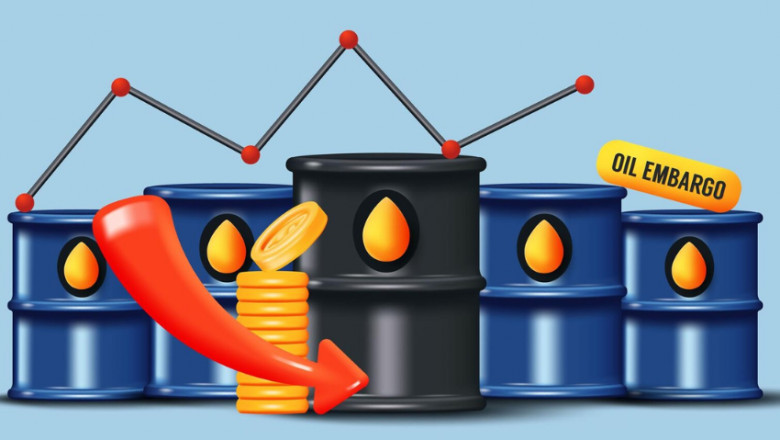views
In an increasingly unpredictable world, the agriculture sector faces numerous challenges—from climate change and economic instability to supply chain disruptions and fuel shortages. Amid such uncertainties, agricultural fuel suppliers play a pivotal role in crisis planning and response. Their ability to maintain steady fuel supplies directly impacts food production, equipment operation, and rural economies. This article explores how agricultural fuel suppliers contribute to effective crisis planning, why their role is critical, and how farmers and agricultural businesses can strengthen their partnerships for better resilience.
Why Agricultural Fuel Is Critical in a Crisis
Fuel is the backbone of modern agriculture. From powering tractors and harvesters to running irrigation systems and transporting produce, diesel and alternative fuels are essential to daily farm operations. In times of crisis—be it natural disasters, fuel shortages, geopolitical tension, or pandemics—disrupted access to fuel can halt farming activities altogether.
Without reliable fuel supply, crops may be left unharvested, livestock untransported, and food unable to reach markets. That’s why agricultural fuel is not just a commodity—it’s a strategic resource, especially during emergencies.
1. Ensuring Continuity of Supply
One of the core roles of agricultural fuel suppliers in crisis planning is ensuring continuity of supply. Trusted suppliers work proactively with their clients to assess usage patterns, predict fuel demands, and secure stock ahead of time. In regions vulnerable to seasonal weather events—like flooding or snow—advanced fuel delivery planning is vital.
Suppliers with well-maintained logistics networks, on-site storage capacity, and contingency delivery plans ensure that farmers aren't left stranded when roads close or demand spikes. The best suppliers often use GPS tracking, automated refill systems, and digital alerts to ensure uninterrupted delivery even under pressure.
2. Emergency Fuel Reserves
Top-tier fuel suppliers often maintain emergency reserves and prioritise agricultural clients during crises. This reserve fuel can be critical when national supply chains are disrupted or rationing measures are introduced. Suppliers may work closely with regional councils, farming co-operatives, and agricultural boards to provide preferential access to fuel for essential operations.
Farmers who plan ahead and partner with reputable suppliers gain a strategic advantage—knowing they’ll have access to reserves when others may be queuing at empty pumps.
3. Flexible Delivery and Mobile Support
During a crisis, flexibility is essential. Agricultural fuel suppliers with mobile tankers and adaptable delivery systems can bring fuel directly to affected areas, regardless of infrastructure damage or logistical constraints. In rural areas, where access might be limited, mobile fuel delivery becomes a lifeline.
Additionally, some suppliers offer on-farm fuel storage solutions and mobile bowsers to allow safe and efficient storage of larger quantities. This enables farmers to become partially self-sufficient, reducing reliance on external logistics during high-stress periods.
4. Risk Assessment and Crisis Planning Support
Experienced agricultural fuel suppliers don’t just deliver fuel—they help identify vulnerabilities in farm operations. They may offer advice on:
-
Fuel stockpiling strategies
-
Security and safety of on-site storage tanks
-
Fuel rotation and quality management
-
Backup systems for generators and heating oil
By working closely with their clients, suppliers become part of the farmer’s crisis response team. This collaborative planning helps mitigate risk, reduce losses, and ensure business continuity.
5. Diversification with Renewable Alternatives
In response to long-term fuel insecurity, some agricultural fuel suppliers now offer renewable fuel alternatives, like HVO (Hydrotreated Vegetable Oil) or biodiesel. These fuels not only reduce carbon emissions but also serve as strategic alternatives when fossil fuel supply chains falter.
Forward-thinking farmers are increasingly incorporating renewable fuels into their energy mix. Suppliers who provide this diversification help their clients become more resilient and sustainable in the face of multiple crisis scenarios, from fuel shortages to climate-driven regulations.
6. Communication and Real-Time Updates
Crisis planning also involves clear, timely communication. Agricultural fuel suppliers equipped with digital platforms, SMS alerts, and customer portals keep farmers informed of delivery schedules, weather-related delays, and inventory status. During emergencies, such real-time updates become invaluable.
Suppliers who maintain open lines of communication foster trust and confidence—ensuring that farmers can focus on their operations, not on worrying about their next fuel delivery.
Conclusion
The agricultural sector cannot afford to treat fuel suppliers as just vendors. In times of crisis, these professionals become strategic partners—helping to safeguard the very systems that produce the nation’s food supply. With foresight, collaboration, and careful planning, agricultural fuel suppliers are indispensable in building a resilient, secure, and sustainable farming future.













Comments
0 comment